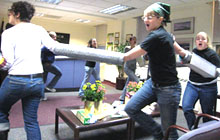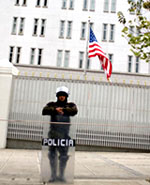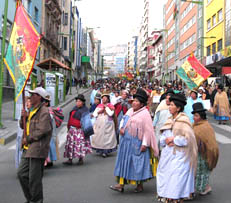
Vermont Peace Activists Occupy General Dynamics Weapons Plant
On May 1st, International Workers’ Day, ten peace activists in Burlington, Vermont entered General Dynamics and locked themselves together in the main lobby of the building in protest against the company’s weapons manufacturing and war profiteering. University of Vermont student Benjamin Dube, one of the dozens of other activists present at the event, leaned out a window of the lobby, and pointed to the GD building, explaining, “This is the gas tank of the war machine, and we are the sugar.”





